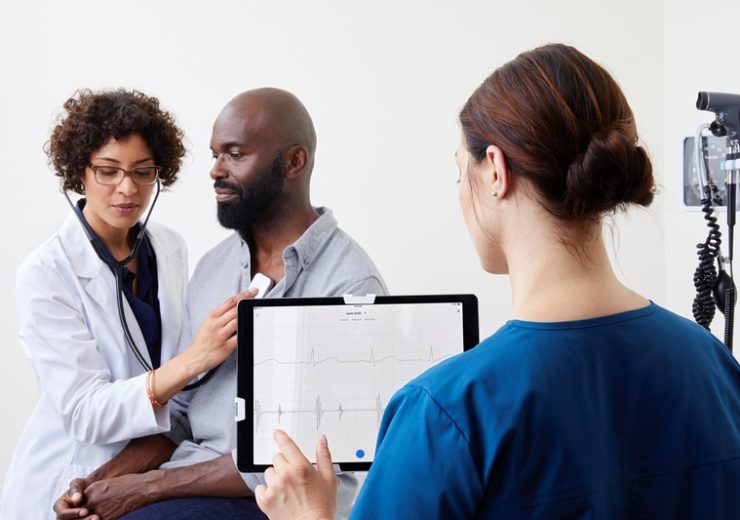Eko will use the funding to advance research and development and commercialisation of its machine learning platform for cardiac screening and analysis

Image: Eko has partnered with some of the most respected healthcare clinics to change how cardiac care is managed. Photo: Courtesy of Eko.
US-based digital health company Eko has secured $20m (£16m) in Series B funding led by ARTIS Ventures to advance research and development and commercialisation of its machine learning platform for cardiac screening and analysis.
New and returning investors including DigiTx Partners, NTT Venture Capital (NTTVC), 3M Ventures, Mayo Clinic, Seraph Group, and XTX Ventures have participated in the funding round.
ARTIS Ventures partner Vasudev Bailey said: “Eko is transforming cardiac care as we know it. They are the perfect example of how machine learning using quality data sets can positively influence patient outcomes and improve quality of care.
“This demonstrates the potential for an immense pipeline of life-saving applications where sound can aid in the screening of many other diseases.”
Eko will develop machine learning tools to fight heart disease
Eko said that it is partnering with medical device and pharmaceutical companies to create combinations of therapies and data to help personalise cardiac care.
In addition, the company intends to enhance its focus on clinical research and invest more in its collaborations with the Mayo Clinic, Northwestern Medicine, and UCSF.
The collaborative studies will enable the company to build more advanced algorithms for specific conditions, including atrial fibrillation and valvular heart disease, along with congestive heart failure and structural heart disease.
Eko said that it has developed the first cardiac monitor to combine digital stethoscope and ECG technology both for in-clinic and at-home monitoring to enable the patients to consistently send cardiac data to their physicians.
Eko CEO Connor Landgraf said: “With the staggering number of people affected by heart disease, it’s clear that advancements in cardiac screening and monitoring have never been more urgent.
“Artificial intelligence is arguably one of the most powerful advancements in modern medicine, enabling clinicians to predict with more accuracy, diagnose with more confidence, and in the end, give their patients the best care possible.
“We will use this funding to drive more research, and continue development of data-driven technology to help physicians detect and monitor patients with heart disease that may otherwise be missed.”
